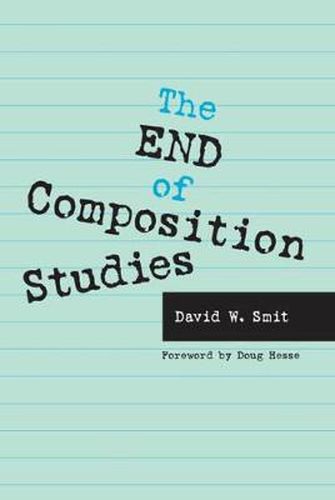Readings Newsletter
Become a Readings Member to make your shopping experience even easier.
Sign in or sign up for free!
You’re not far away from qualifying for FREE standard shipping within Australia
You’ve qualified for FREE standard shipping within Australia
The cart is loading…






Setting forth an innovative new model for what it means to be a writing teacher in the era of writing across the curriculum,
The End of Composition Studies
urges a reconceptualization of graduate work in rhetoric and composition, systematically critiques the limitations of current pedagogical practices at the postsecondary level, and proposes a reorganization of all academic units. David W. Smit calls into question two major assumptions of the field: that writing is a universal ability and that college-level writing is foundational to advanced learning. Instead, Smit holds, writing involves a wide range of knowledge and skill that cannot be learned solely in writing classes but must be acquired by immersion in various discourse communities in and out of academic settings.
The End of Composition Studies
provides a compelling rhetoric and rationale for eliminating the field and reenvisioning the profession as truly interdisciplinary - a change that is necessary in order to fulfill the needs and demands of students, instructors, administrators, and our democratic society.
$9.00 standard shipping within Australia
FREE standard shipping within Australia for orders over $100.00
Express & International shipping calculated at checkout
Setting forth an innovative new model for what it means to be a writing teacher in the era of writing across the curriculum,
The End of Composition Studies
urges a reconceptualization of graduate work in rhetoric and composition, systematically critiques the limitations of current pedagogical practices at the postsecondary level, and proposes a reorganization of all academic units. David W. Smit calls into question two major assumptions of the field: that writing is a universal ability and that college-level writing is foundational to advanced learning. Instead, Smit holds, writing involves a wide range of knowledge and skill that cannot be learned solely in writing classes but must be acquired by immersion in various discourse communities in and out of academic settings.
The End of Composition Studies
provides a compelling rhetoric and rationale for eliminating the field and reenvisioning the profession as truly interdisciplinary - a change that is necessary in order to fulfill the needs and demands of students, instructors, administrators, and our democratic society.